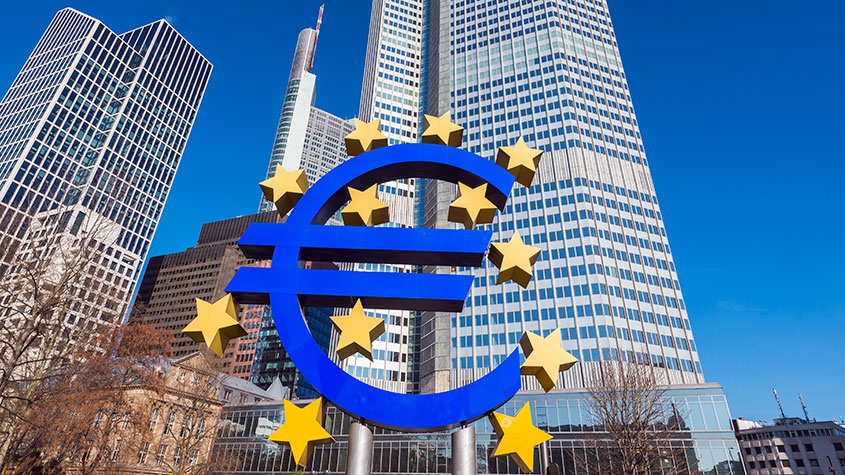Greece: another serving of EU fudge
Greece is finally emerging from its financial rescue programme, but it will have to keep a tight lid on spending for years.

Get the latest financial news, insights and expert analysis from our award-winning MoneyWeek team, to help you understand what really matters when it comes to your finances.
You are now subscribed
Your newsletter sign-up was successful
Want to add more newsletters?

Twice daily
MoneyWeek
Get the latest financial news, insights and expert analysis from our award-winning MoneyWeek team, to help you understand what really matters when it comes to your finances.

Four times a week
Look After My Bills
Sign up to our free money-saving newsletter, filled with the latest news and expert advice to help you find the best tips and deals for managing your bills. Start saving today!

"It has been too long coming," says the Financial Times. After suffering the equivalent of America's Great Depression a 25% fall in GDP since its debt crisis began eight years ago, and three emergency bailouts, Greece is now finally emerging from its financial rescue programme. It exits the European Union and International Monetary Fund's bailout package in August.
Last week's deal with the EU stretched deadlines on €100bn of bailout loans. The repayment period has been extended to 2033; the grace period for interest payments has also been pushed back by ten years, so the average loan maturity is now 40 years.
Some of the last tranche of bailout cash will be allocated to servicing debt. The upshot is that Greece "has very little to repay in the near term and enough reserves to run the country for nearly two years", says Lex in the FT.
MoneyWeek
Subscribe to MoneyWeek today and get your first six magazine issues absolutely FREE

Sign up to Money Morning
Don't miss the latest investment and personal finances news, market analysis, plus money-saving tips with our free twice-daily newsletter
Don't miss the latest investment and personal finances news, market analysis, plus money-saving tips with our free twice-daily newsletter
But the good news ends there. Greece "is swapping bailout hell for eternal purgatory", as Neil Unmack points out on Breakingviews. It will have to keep a tight lid on spending for years: the Europeans have insisted on a primary budget surplus (before interest payments) of more than 3.5% of GDP, three times the eurozone average. After that until 2060 the primary surplus falls to 2.2%.
Greece's debt pile is too high
Throughout the years, every plan to deal with Greece's recurrent drama was heralded as the ultimate solution. It never was and this one, despite EU economic affairs commissioner Pierre Moscovici's insistence that "the Greek crisis ends here", will also prove a false dawn.
As usual, the plan is based on "forecasts of strong growth and large budget surpluses that [are likely] to prove too optimistic", says Capital Economics. Greece doesn't have a hope of growing fast enough to work off its unsustainable debt pile of 180% of GDP. This package has alleviated but not solved the problem; the debt burden has just been pushed "further into the future". At some stage, however, "either a managed haircut or a disorderly default seem inevitable".
The economy has returned to growth, but still looks fragile. The 2% growth rate depends on ultra-long debt maturities and low interest rates. The banking system is still grappling with bad loans. Unemployment remains high at 20%; corruption is endemic. Political support for ongoing austerity is hardly guaranteed either. An unpopular pension reform, due to be implemented next January, "will test" people's inclination to make further sacrifices, says the FT. Once again, Europe has bought itself some time. And once again, a problem is being managed, not resolved.
Get the latest financial news, insights and expert analysis from our award-winning MoneyWeek team, to help you understand what really matters when it comes to your finances.

-
 Should you buy an active ETF?
Should you buy an active ETF?ETFs are often mischaracterised as passive products, but they can be a convenient way to add active management to your portfolio
-
 Power up your pension before 5 April – easy ways to save before the tax year end
Power up your pension before 5 April – easy ways to save before the tax year endWith the end of the tax year looming, pension savers currently have a window to review and maximise what’s going into their retirement funds – we look at how
-
 No peace dividend in Trump's Ukraine plan
No peace dividend in Trump's Ukraine planOpinion An end to fighting in Ukraine will hurt defence shares in the short term, but the boom is likely to continue given US isolationism, says Matthew Lynn
-
 Europe’s new single stock market is no panacea
Europe’s new single stock market is no panaceaOpinion It is hard to see how a single European stock exchange will fix anything. Friedrich Merz is trying his hand at a failed strategy, says Matthew Lynn
-
 The French economy's Macron bubble is bursting
The French economy's Macron bubble is burstingCheap debt and a luxury boom have flattered the French economy. That streak of luck is running out.
-
 Britain’s inflation problem
Britain’s inflation problemInflation in the UK appears to be remaining higher for longer when compared with similar rich countries. Why? And when can we expect a return to normal? Simon Wilson reports.
-
 Eurozone inflation hits 10.7% in October
Eurozone inflation hits 10.7% in OctoberNews Inflation across the eurozone hit 10.7% in October. What does it mean for your money?
-
 A forgotten lesson on the dangers of energy price caps
A forgotten lesson on the dangers of energy price capsAnalysis Liz Truss’s proposed energy price cap is an ambitious gamble. But a similar programme in Spain ended up being a fiasco, say Max King and Tom Murley. Here, they explain why Truss’s plan could be doomed to failure.
-
 Don't be scared by economic forecasting
Don't be scared by economic forecastingEditor's letter The Bank of England warned last week the UK will tip into recession this year. But predictions about stockmarkets, earnings or macroeconomic trends can be safely ignored, says Andrew Van Sickle.
-
 What is stagflation and what can be done about it?
What is stagflation and what can be done about it?The UK economy is showing signs of weakness, but inflation remains stubbornly high – a dangerous combination that economists call ‘stagflation’